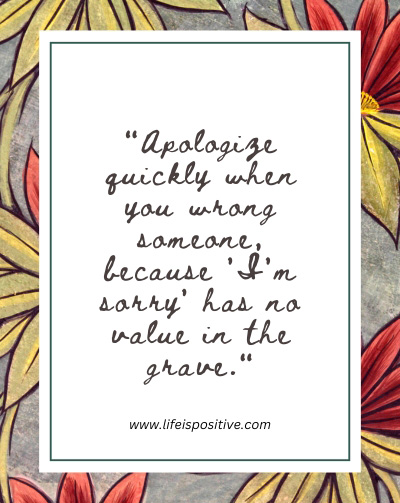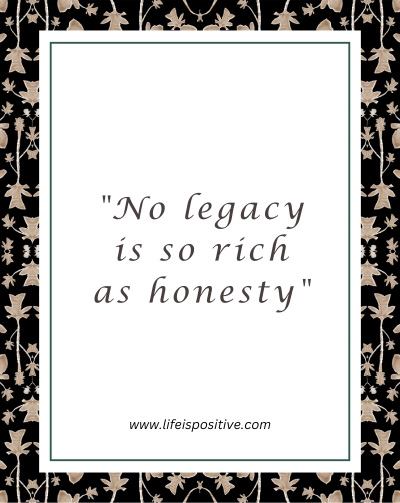|
Getting your Trinity Audio player ready...
|
Love is beautiful, but love alone isn’t enough to make a relationship thrive. At the core of every healthy, lasting bond is something deeper, quieter, and even more sacred: respect. It’s the soul of a relationship—the steady force that holds it all together, especially when life gets messy.
So, what is respect in a relationship, really? It’s the daily choice to honor each other, to listen with care, to hold space for individuality while growing together.
Let’s explore 30 clear signs that show you’re not just in love—you’re in a relationship rooted in real respect.
1. You Listen to Each Other Fully
Active listening is love in action. You’re not just waiting for your turn to speak—you’re genuinely tuned in, present, and open to understanding.
2. You Value Each Other’s Opinions
Even when you disagree, you honor your partner’s right to think and feel differently without belittling or dismissing them.
3. Boundaries Are Set and Honored
Setting personal boundaries is healthy. Honoring them? That’s a major sign of respect in a relationship. You both feel safe expressing needs without fear of judgment.
4. You Apologize When You’re Wrong
Respect looks like accountability. Saying “I’m sorry” isn’t weakness—it’s emotional maturity and a way to restore trust.
5. You Celebrate Each Other’s Wins
There’s no competition here. Their success is your joy. You cheer each other on like teammates, not rivals.
6. You Speak Kindly During Disagreements
Even when tempers flare, you don’t resort to insults or low blows. You argue with the intention to resolve, not to wound.
7. You Support Individual Growth
You don’t hold each other back. Respect in a relationship means encouraging your partner to evolve, try new things, and follow their dreams.
8. You Keep Your Promises
Consistency builds trust. When you say you’ll do something, you follow through. Your word means something.
9. You Respect Each Other’s Time
You don’t make them wait endlessly or dismiss plans casually. Their time is valuable, and you treat it that way.
10. Personal Space Is Honored
Alone time isn’t a threat—it’s necessary. You both understand that space can actually bring you closer.
11. You Don’t Keep Score
It’s not about who did what last. You give and receive without tallying favors or resentments.
12. You’re Honest but Gentle
Respect in a relationship means telling the truth with kindness. Even when it’s hard, you choose words that build, not break.
13. You Defend Each Other When It Counts
You stand up for one another—whether it’s around family, friends, or in uncomfortable situations. You’ve got each other’s backs.
14. You Trust One Another
There’s no need to constantly check phones or question motives. Real respect includes deep trust, built over time.
15. You Accept Each Other’s Past
No judgment. You recognize that everyone has a history, and you don’t weaponize it in the present.
16. You Share Responsibilities
From chores to emotional labor, everything’s a team effort. You both pull your weight with love and respect.
17. You’re Willing to Compromise
No one always gets their way—and that’s okay. You meet in the middle because the relationship matters more than being right.
18. You Avoid Passive-Aggressiveness
You express your needs openly instead of resorting to silent treatment or guilt trips. Clear, kind communication is the norm.
19. You Laugh Together Often
Respect doesn’t mean being serious all the time. It includes playfulness, inside jokes, and shared joy.
20. You Prioritize Emotional Safety
You never use someone’s vulnerability against them. Their heart feels safe in your hands.
21. You Express Appreciation Regularly
A simple “thank you” goes a long way. You don’t take each other for granted.
22. You Celebrate Differences
You’re not trying to “fix” each other. You embrace your partner for who they are—even the quirky, weird parts.
23. You’re Each Other’s Safe Place
At the end of the day, you both know you can be your full selves with each other, without fear of rejection.
24. You’re Present During Conversations
Scrolling through your phone while they’re pouring their heart out? Not happening. You make time to be fully there.
25. You Talk To Each Other, Not About Each Other
Gossiping about your partner, even in subtle ways, erodes respect. Real love means taking concerns directly to them with compassion.
26. You Take “No” Gracefully
Consent and comfort matter. Whether it’s about intimacy, plans, or energy levels, “no” is respected without pressure or guilt.
27. You Uplift, Don’t Undermine
You don’t mock, belittle, or use sarcasm to tear them down. Your words are rooted in love, even during playful teasing.
28. You Make Each Other Feel Seen
You notice the little things. Whether it’s their new haircut or a shift in mood, you’re tuned in and responsive.
29. You Handle Conflicts Privately
You don’t air dirty laundry or try to “win” arguments in front of others. You handle issues with care and privacy.
30. You Grow Together
Respect in a relationship isn’t static. It deepens as you both grow, evolve, and show up for each other through every season of life.
The Beauty of Respect
At its core, respect is sacred. It’s saying, “I see your soul, and I choose to honor it.” It’s more than politeness—it’s a deep reverence for who your partner is and how they walk through the world.
It doesn’t mean you’ll never mess up. You will. But when there’s respect, there’s a willingness to make it right. To own your part. To grow together through the mess.
This kind of respect is patient. It’s grounded. It doesn’t rush or demand. It creates space for both of you to breathe, to be vulnerable, to feel safe being fully human.
Final Thoughts: What is Respect in a Relationship
So, what is respect in a relationship? It’s everything. It’s the foundation, the heartbeat, the glue. Without it, even the most passionate love starts to fray. But with it? Love deepens. Trust builds. And your relationship becomes a safe, sacred place to land.
If you see these signs in your relationship, hold them close. Water them. Celebrate them. And if you’re still working toward them, that’s okay too. Respect is a practice, not a checkbox.
Every time you choose kindness, listen deeply, honor a boundary, or apologize sincerely, you’re building something real. Something lasting. Something worthy of the word “love.”
For more empowering content, connect with our vibrant community here ➡️ Social Media.



